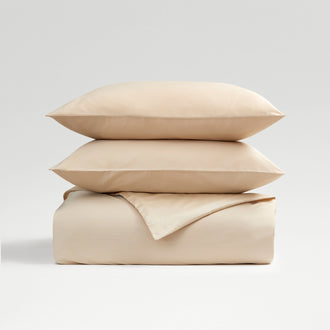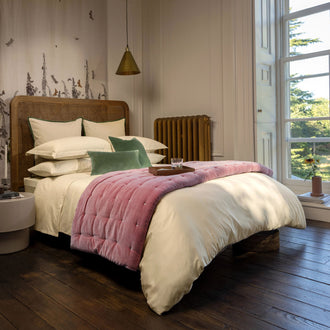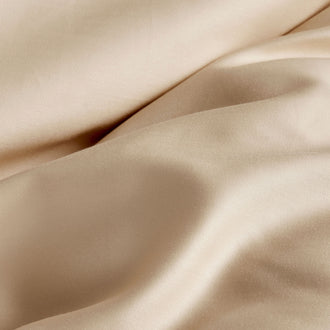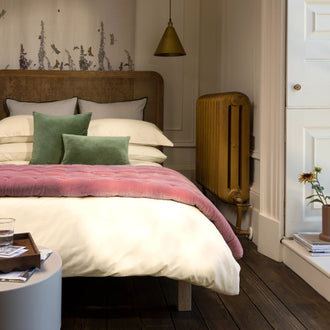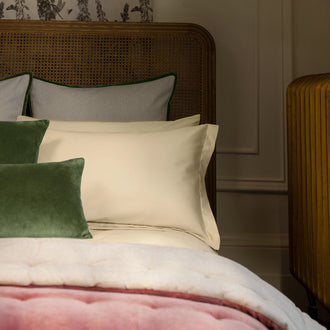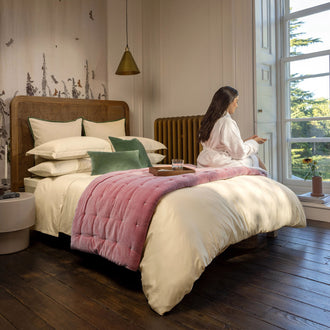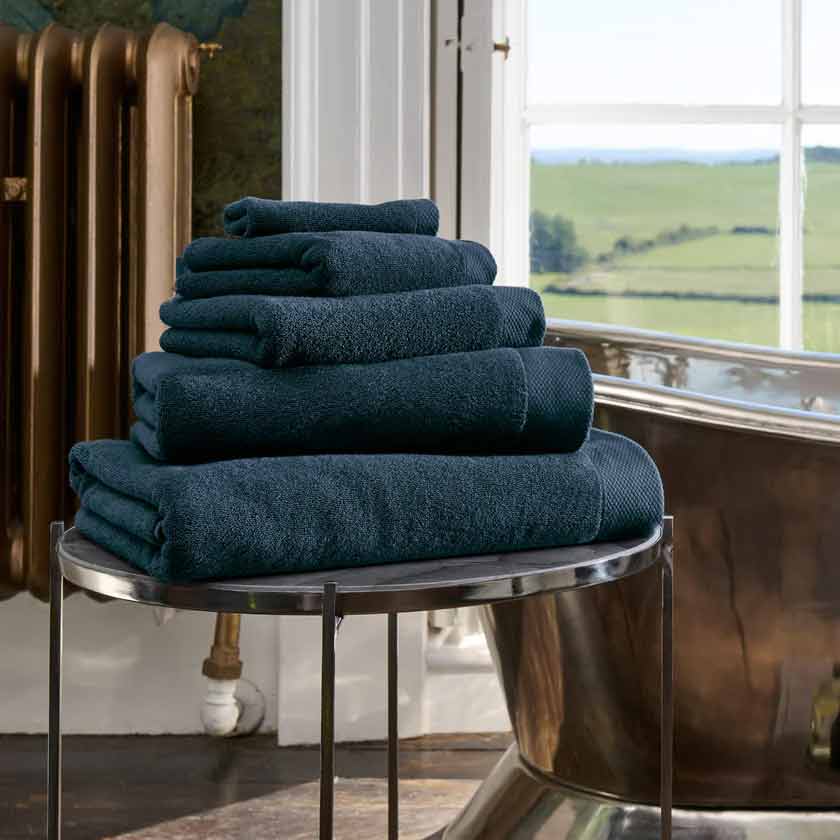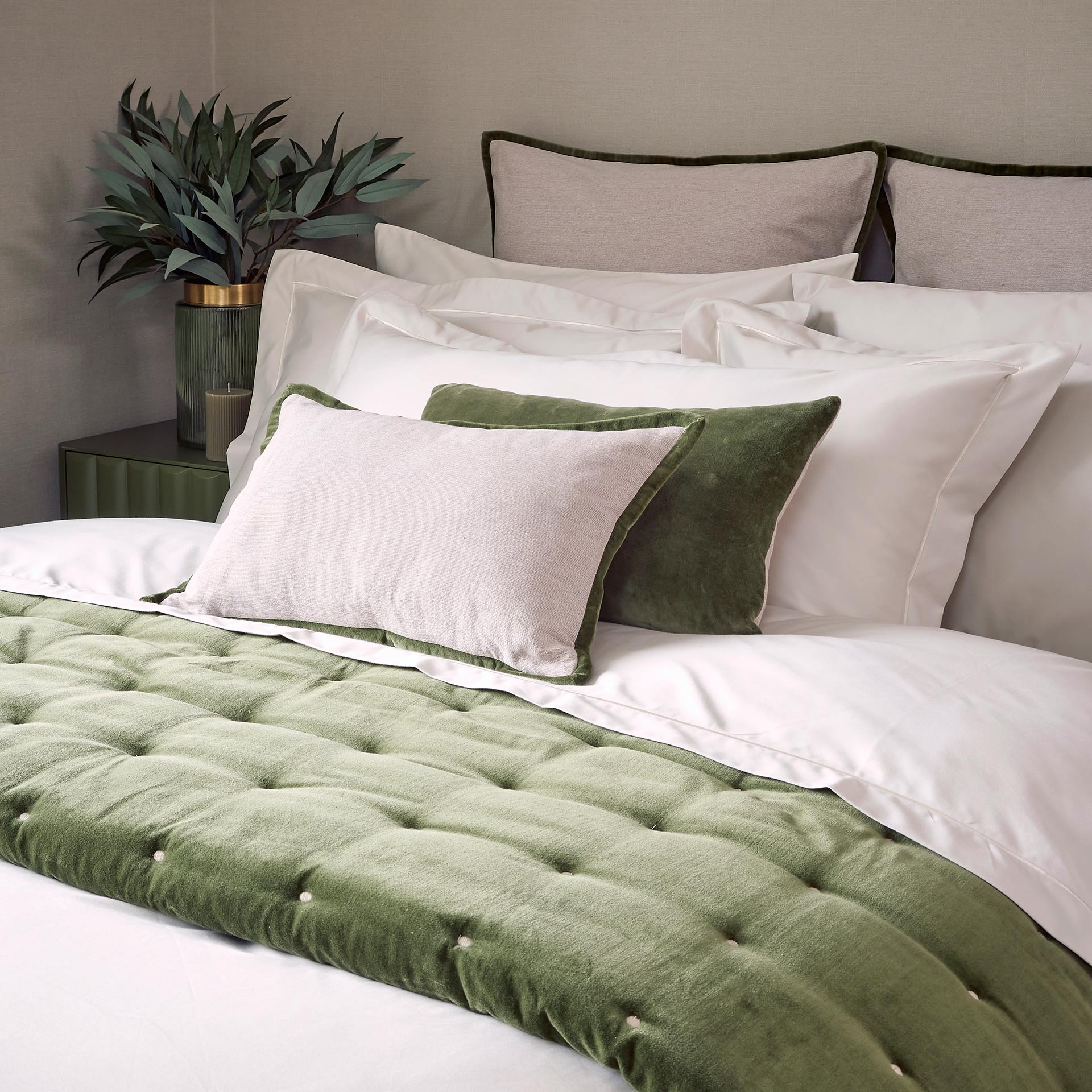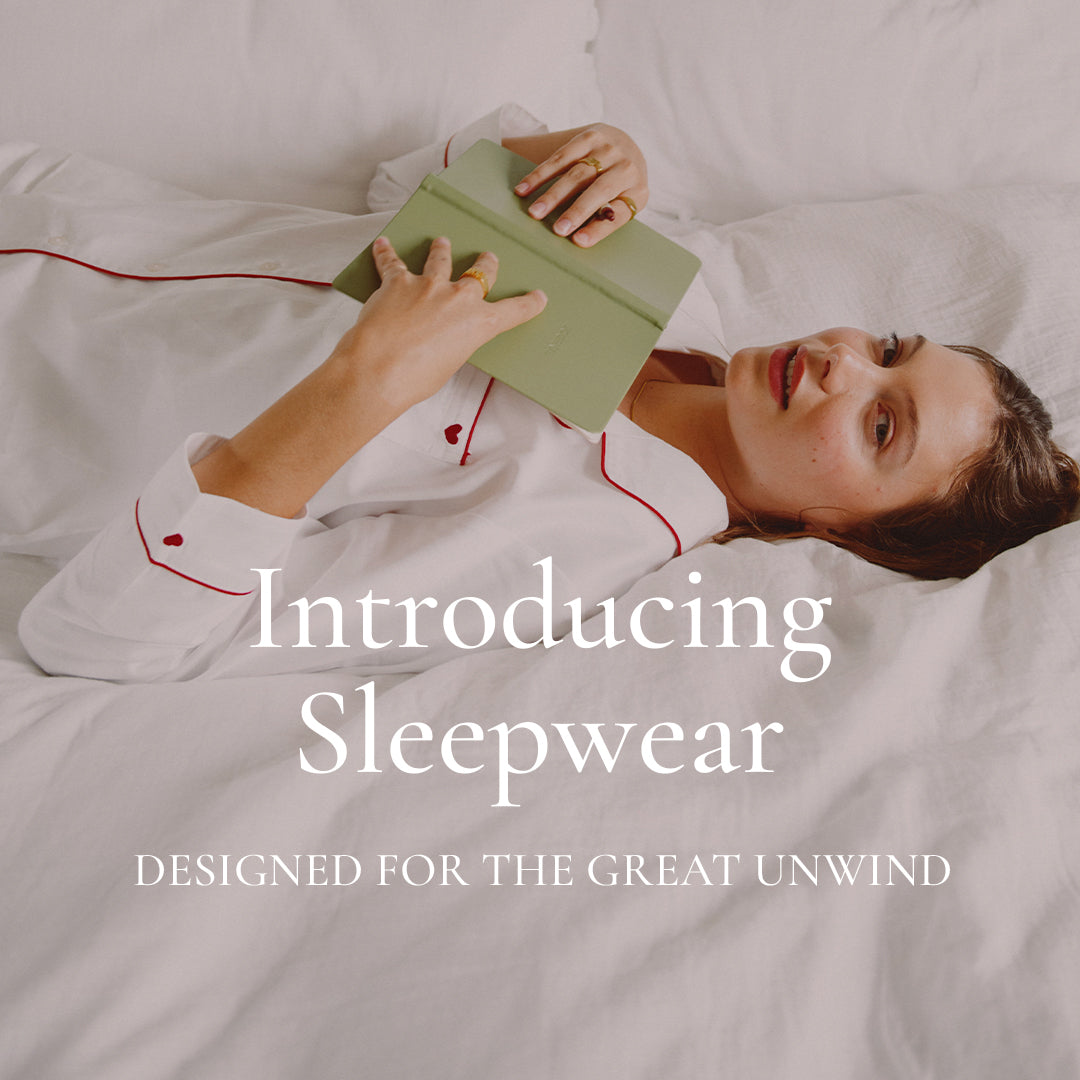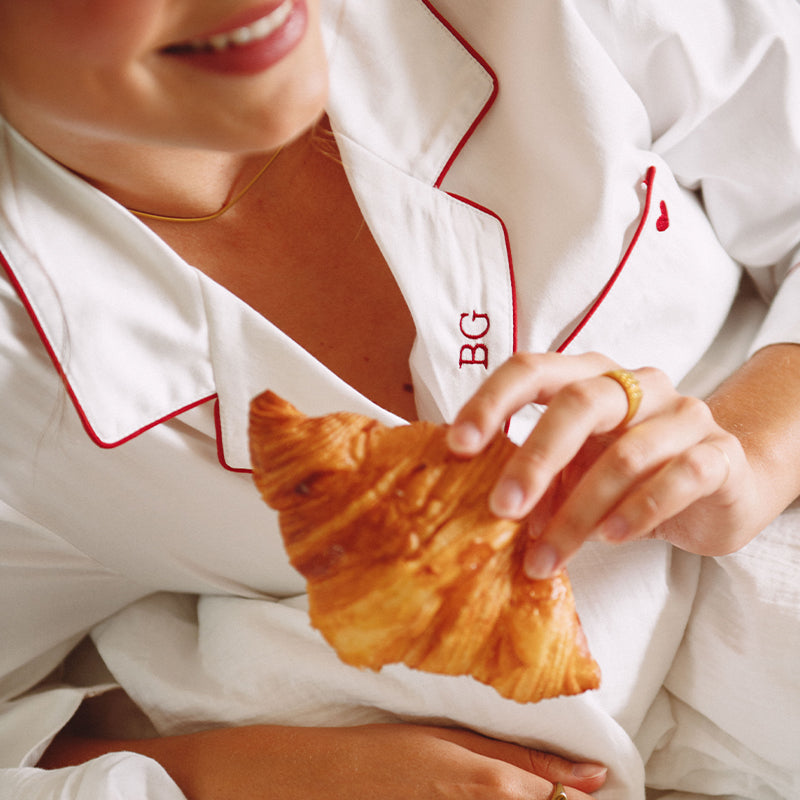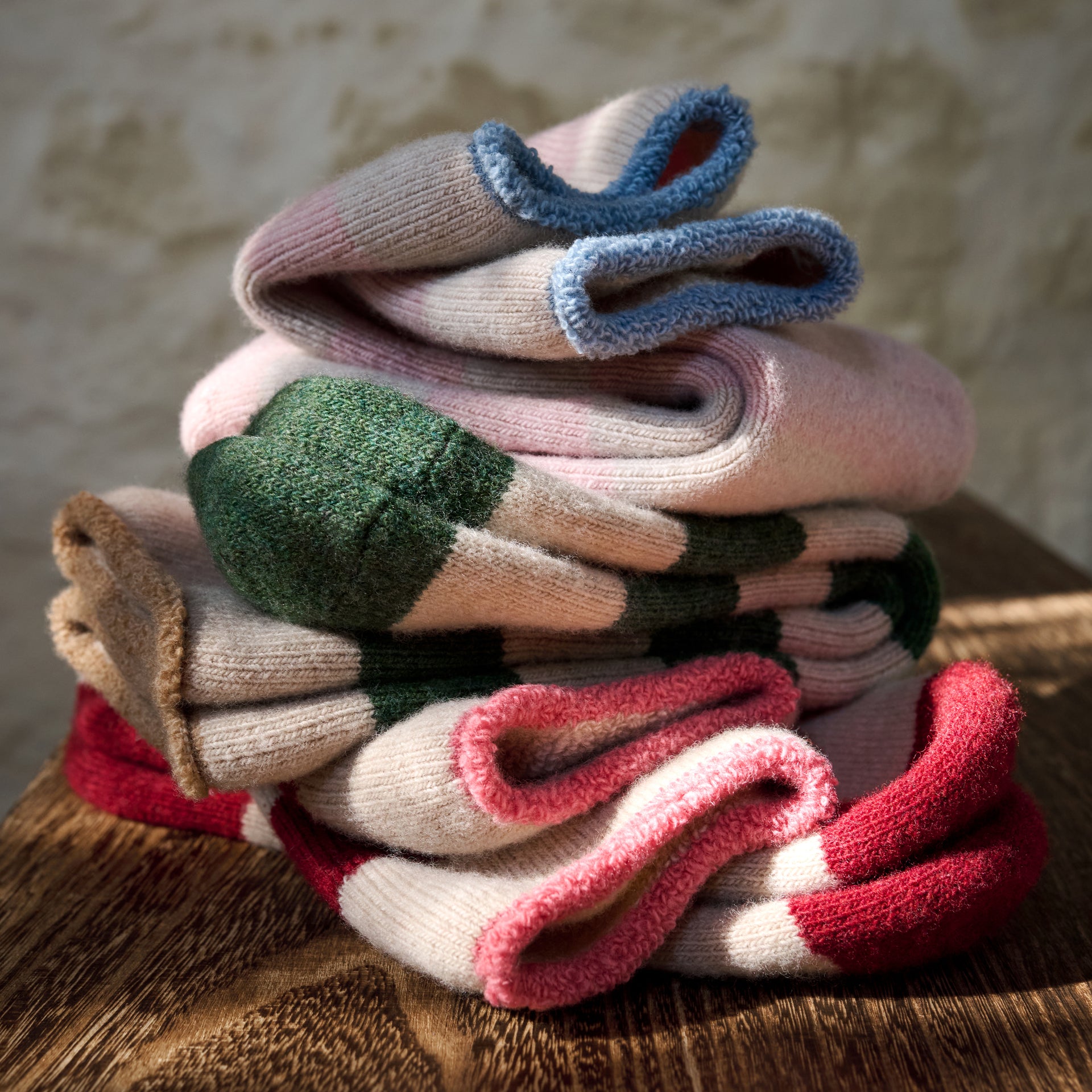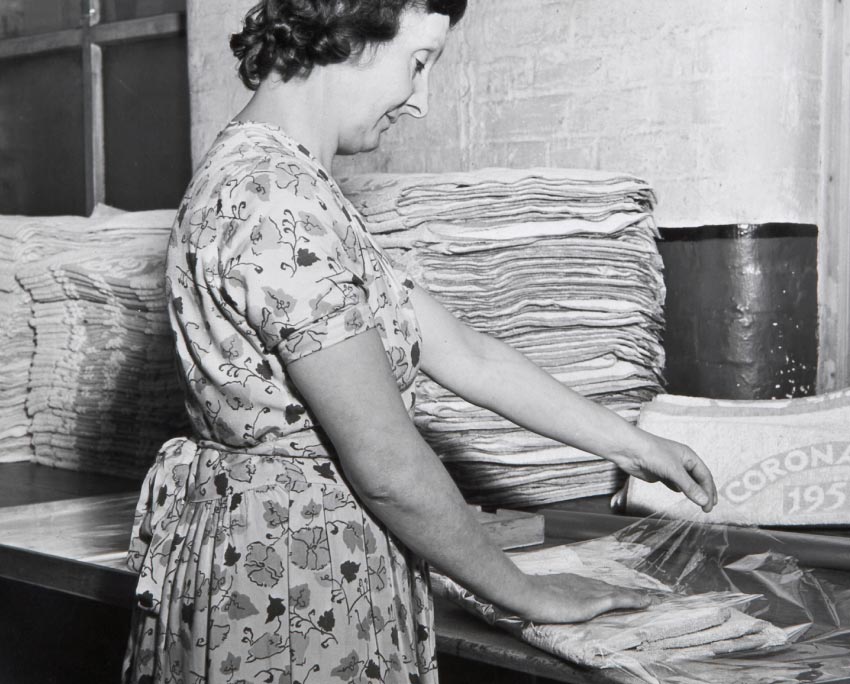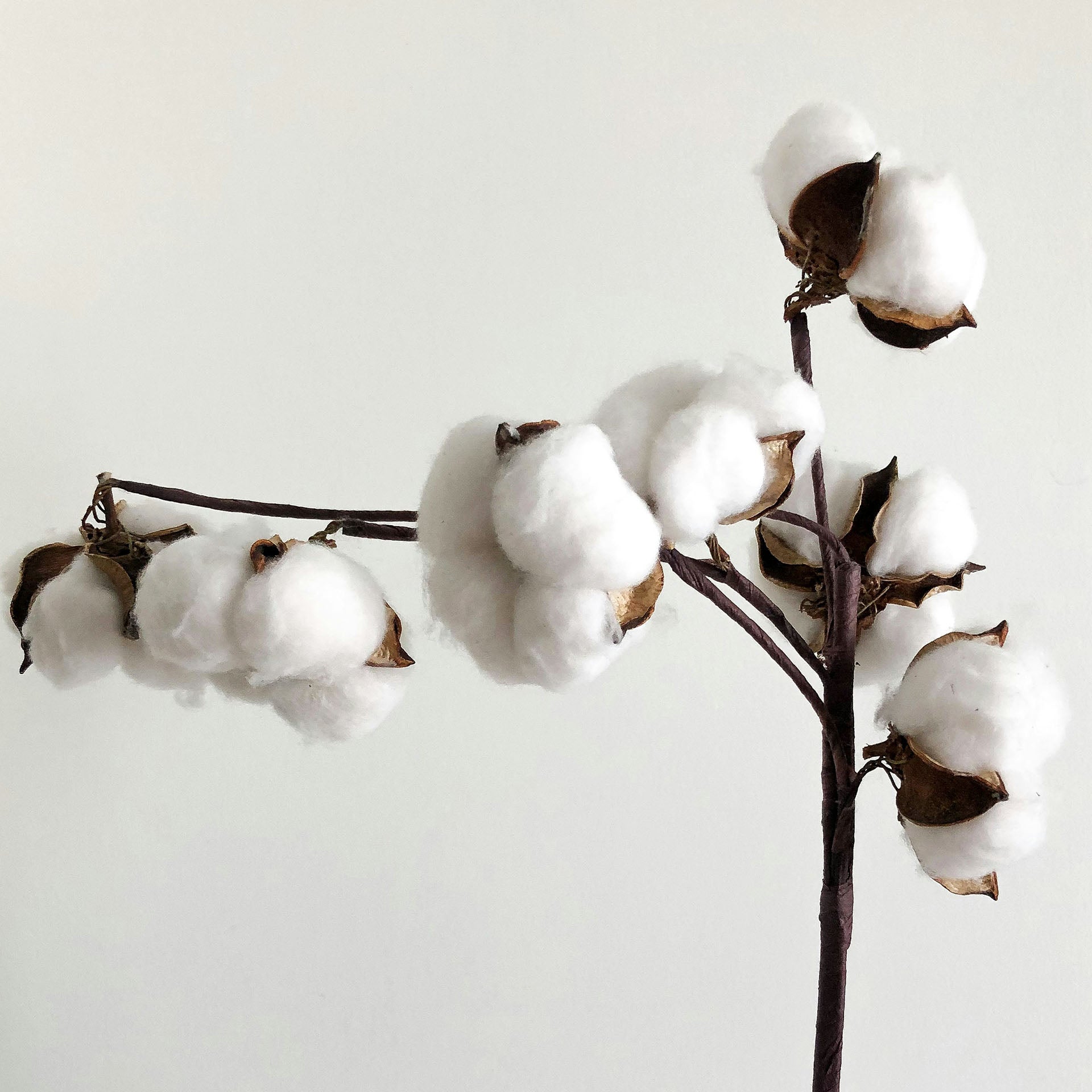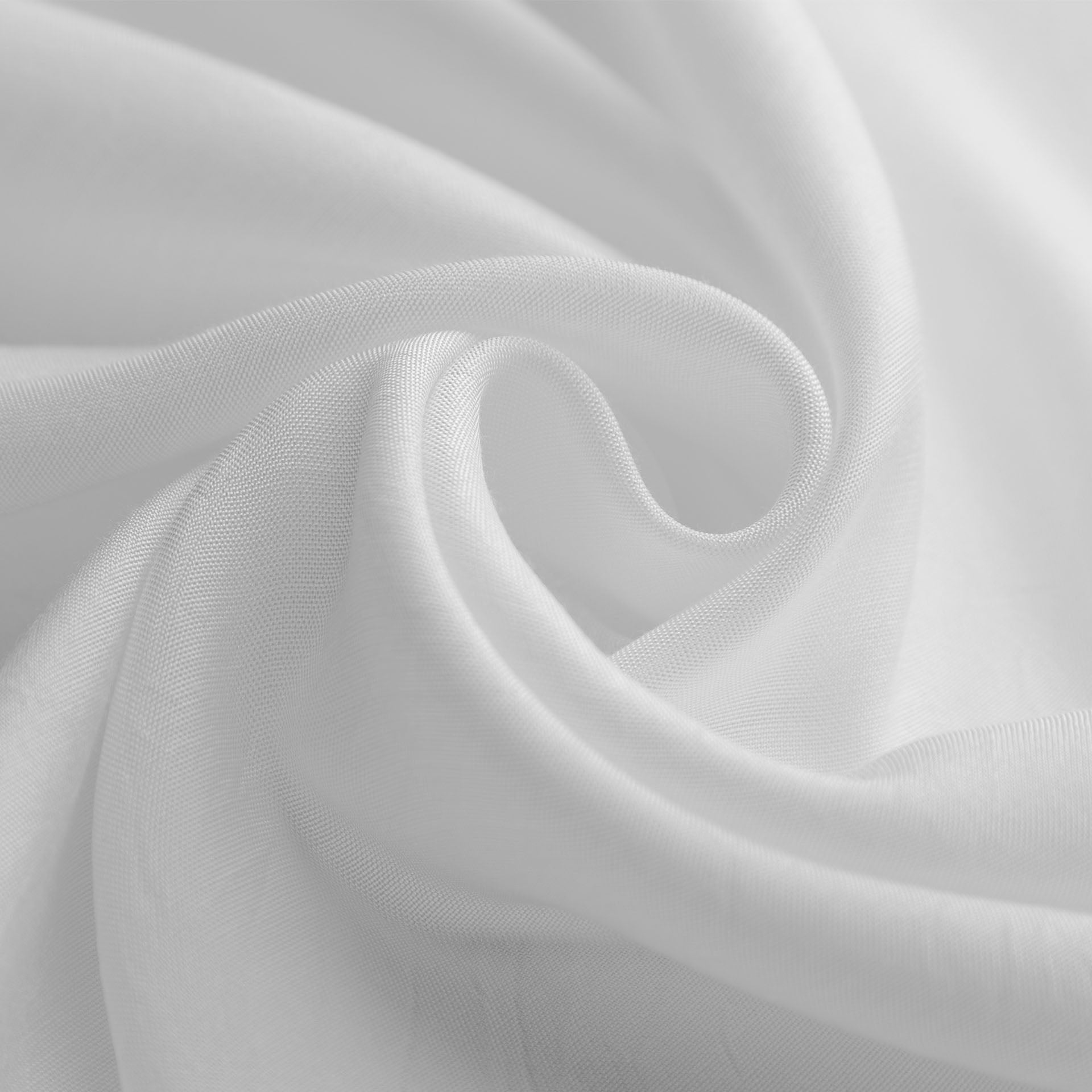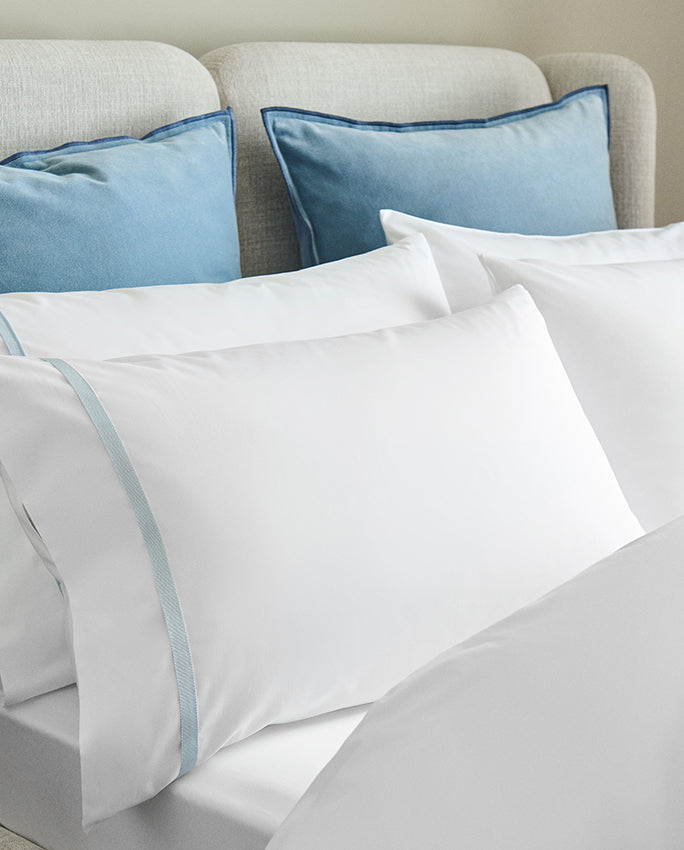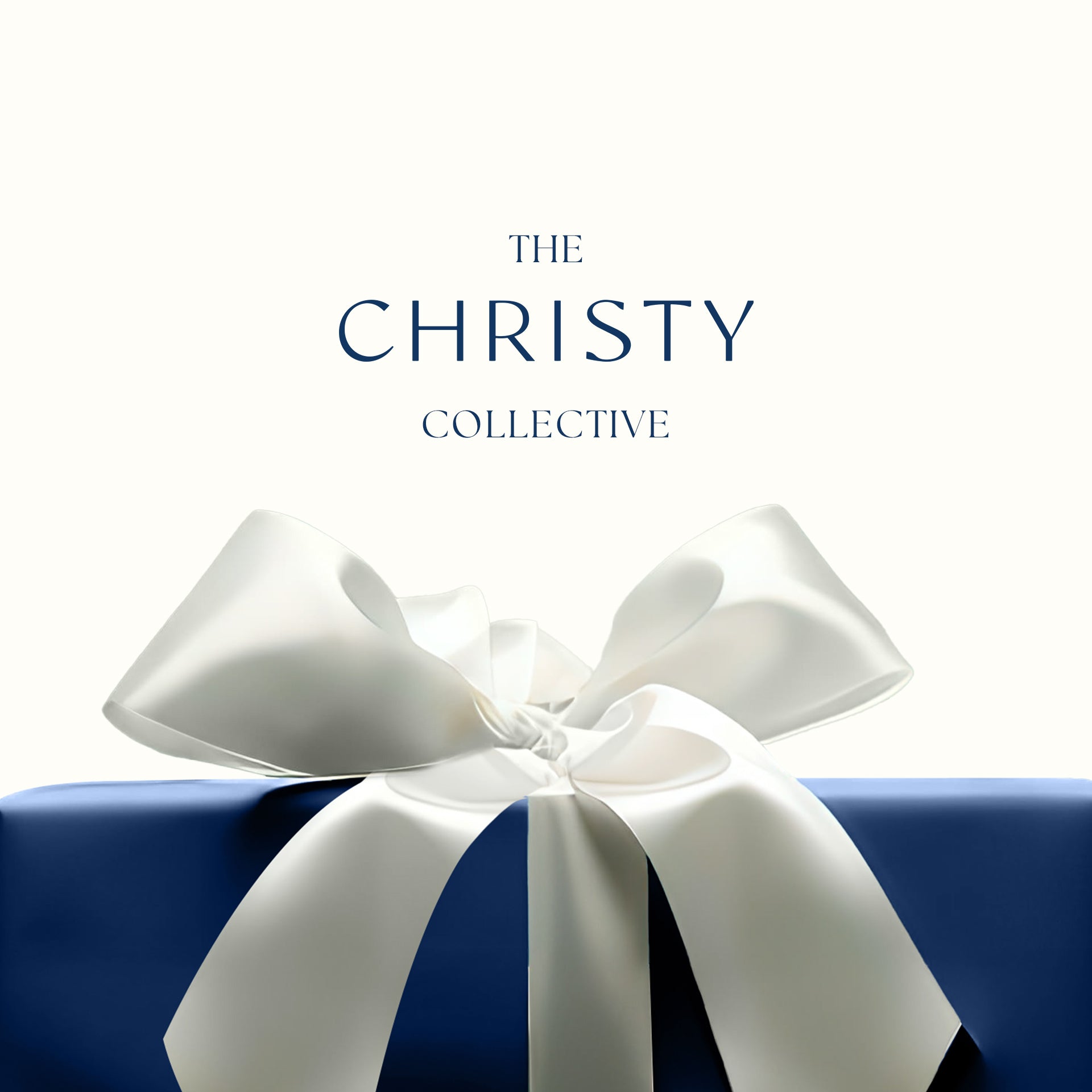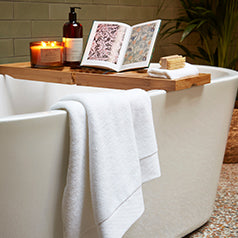Buying Guides
Bedding Guide | Bed Linen Guide | Bath Guide
Bedding Guide
Find your dream duvet
Set yourself up for a good night's slumber in one of our quality Christy duvets.
Whether you're after something plush and warm to keep you cosy through those never-ending drizzly seasons, or need a feather-light and airy duvet to help you stay cool during steamy summer nights, we've got you covered.
Before you invest in a duvet, there are some basic things to know so you're sure to get the one that suits you best.
Why choose a synthetic filling?
Duvets that have a synthetic filling are soft, warm, and easy to care for. They're just the thing for those who suffer from allergies or for busy families and pet owners who need to wash their duvets regularly. A perfect fit for those with busy lives who want a little Christy's luxury, everyday.
Cool and fresh or warm and cosy?
Whether you're a one-leg-poking-out-the-side sleeper or you rest easiest when you're wrapped up in a cotton cocoon, there is a Christy's duvet for you.
The warmth of a duvet is measured in togs (which stands for thermal overall grade, and which describes how well it insulates).
The higher the tog, the warmer the duvet. If you're a hot sleeper or you're after a duvet to use during those balmy summer months, choose one with a tog rating between 2.5 and 7.
For those in between seasons, or if you're after an 'all rounder' to use throughout the year, choose a duvet with a tog rating around 10.5. It will be snug enough to keep you cosy during colder seasons, and cool enough to keep you from roasting as the temperature soars.
When it's oh-so-chilly outside and you want to keep toasty and warm, choose a duvet with a rating of 13 or above.
Find your perfect pillow
Lay back and rest easy on a Christy's pillow.
Our pillows are made to support you through your best night's sleep, whether you covet the plush softness of a feather pillow or prefer the support of a firm fill.
Before you treat yourself to a fluffy new pillow (or four), there are some basic things to know so you're sure to get the one that suits you best.
Your sleeping position
One of the most important considerations when buying a pillow is your sleeping position. This is because you want to keep your body in neutral alignment, which means keeping your head, neck, and spine in a similar position to how you would when you're standing up.
Your level of support
If you sleep on your back, a fairly flat pillow is the best choice.
If you're a side sleeper, you'll likely want a slightly thicker pillow to allow your neck and head to align over your shoulders.
If you're a stomach sleeper, choose a flatter pillow to help keep your head and neck set comfortably in line as you sleep.
Synthetic pillows
Our synthetic pillows are filled with microfiber, cluster fiber, or hollowfibre, which give the pillows a luxurious down-like feel and are hypoallergenic and easy to care for. They are a great choice for busy families.
Bed Linen Guide
Choosing the right bed linen for you
Read on to discover the bedding that will suit you best, or take our quiz to speed up the process.
Snuggle into the perfect Christy sheets for you
Choosing the right bed linen is key for a restful night's sleep.
There are some basic things to know so you're sure to get the bed linen that suits you best.
Material and Weave
Cotton
Cotton is the most prevalent natural fiber in the world, and we here at Christy are big fans. Soft, absorbent, and breathable, it's gentle on the skin and comfortable to wear. Cotton fiber is plucked from the fluffy seed bolls of a family of leafy green shrubs, Gossypium. There are more than 50 different species, and at Christy, we only use the finest.
Egyptian Cotton
Egyptian cotton has a well-earned reputation for its velvety softness and supple drape, qualities that are thanks to it's growing environment, the fertile soils of the Nile river delta. The black, loamy soils and regional microclimate produce cotton fibers that are both extra long and smaller in diameter than standard cotton. The super long, fine fibers then create a pampering fabric that is silky-smooth, more absorbent, and more breathable than other cottons.
Supima Cotton
Like Egyptian cotton, supima cotton is one of the finest cotton yarns in the world and is known for its strength and softness. It's an American variety that is strictly regulated by Cotton USA, so you know that if you buy supima, you're buying the best.
Thread Count
When it comes to bed linen, much ado is made about thread count, which refers to the number of threads running lengthwise and widthwise in a square inch of fabric.
The hype around thread count centers around the idea that you can pack more threads into an inch if they are soft and fine, which would lead to a fabric that is equally soft—but that has its limits. While thread count can sometimes be a useful indicator of quality, it's also used for marketing spin and sometimes even puffed up by manufacturers in order to make it seem like their wares are higher quality than they actually are.
So what is a good baseline? Look for a minimum thread count of around 200, anything less, and your bed linen likely won't feel as soft as you'd like it to. Above that, much of it is up to personal preference. For example, a lower thread count might feel airy and light, while a higher thread count might feel heavier and warmer (think: more threads=more densely woven=more weight).
At Christy, our design process begins with materials that are meticulously selected for their quality, then carefully woven into products that bring little moments of luxury into every day. Thread count is part of that; but so are the supple cottons woven into crisp percales and lustrous sateens that make up the Christy Signature collection.
Percale
Percale is a type of woven fabric. When fabrics are woven, there are yarns that run lengthwise, called the warp, and yarns that run horizontally, called the weft. Percale is a plain weave, which means that one weft thread goes over one warp thread, and then under one, and then over another, which creates a grid like a chequerboard. This kind of weave is very stable and strong. Percale has a matte finish, feel fresh and crisp, and are breathable and airy.
Sateen
Like percale, sateen refers to a weave. But sateen's woven structure means that instead of being matte and crisp, it's silky, lustrous, and less prone to wrinkling. The way that it is woven also impacts how it holds heat. Sateen is generally a little heavier and warmer than percale, which means it is a great cool weather bed linen and a perfect choice for those who like to stay extra toasty.
Bath Guide
Find your perfect towel
Continue reading to learn the in's and out's of Christy's signature towels, and how they might suit you, or simply take our quiz.
Whether you want to wrap up in a thick, plush towel after a hot bath, or quickly dry off after an invigorating shower, we can help you find the towel that suits you best.
Material and Weave
Combed Cotton
After cotton is harvested, a machine removes the dirt and seeds from the soft fiber that will eventually be turned into fabric. Then the fluffy fiber heads over to a carding machine, which separates and lines up fibers so that they lay smoothly. Combing is an extra step that makes the final fabric softer and silkier. Superfine brushes comb the fibers, pulling out any that are too short (as these can make the end-fabric less smooth), and picking out even the tiniest of impurities. This premium combed cotton is the Christy's baseline, used across our collections to bring a little luxury to the everyday.
Turkish Cotton
Turkish cotton is a high quality cotton that is soft, durable and dries more quickly than other cottons. The fibers are longer than combed cottons are, which means fabrics made from Turkish cotton are extra-soft and a great fit for all households.
Egyptian Cotton
Egyptian cotton has a well-earned reputation for its velvety softness and supple drape, qualities that are thanks to it's growing environment, the fertile soils of the Nile river delta. The black, loamy soils and regional microclimate produce cotton fibers that are both extra long and smaller in diameter than standard cotton. The super long, fine fibers then create a pampering fabric that is silky-smooth, more absorbent, and more breathable than other cottons.
Supima Cotton
Like Egyptian cotton, Supima cotton is one of the finest cotton yarns in the world and is known for its strength and softness. It's an American variety that is strictly regulated by Cotton USA, so you know that if you buy Supima, you're buying the best.
GSM
GSM (grams per square meter) is a measurement of a towel weight. Towels usually fall between 300 gsm, which is super light, like a microfiber gym towel, and 800 gsm, which is incredibly thick and plush.
There are upsides and downsides to both heavy and light towels, and which you choose will depend on your needs. While high GSM towels feel plush and opulent, they are also heavier, which makes them more challenging to wash and take longer to dry. We'd recommend a high GSM towel for those who are after a luxurious, spa inspired feel in their bathroom.
Lighter and midweight towels (400–600 gsm) will feel a little less plush (though are still cushy and comfy). The main benefit of lighter towels is that they dry more quickly, so they're great for busy bathrooms.
Innovation
We've been perfecting our towels for over a century. We think they're pretty good, but that doesn't mean we're stopping now...
Hygro cotton
Our patented hygro technology creates a hollow core in each one of the fluffy, cotton yarns that are spun. This means that they trap air, making the towels more insulative, thick, and fluffy. The result is a towel that is as soft as a hug, and that stays that way, wash after wash.
Zero twist
Our zero twist towels are created with yarns that have no twist, woven into soft, open loops. The extra surface area makes the towel feel softer and more plush.






